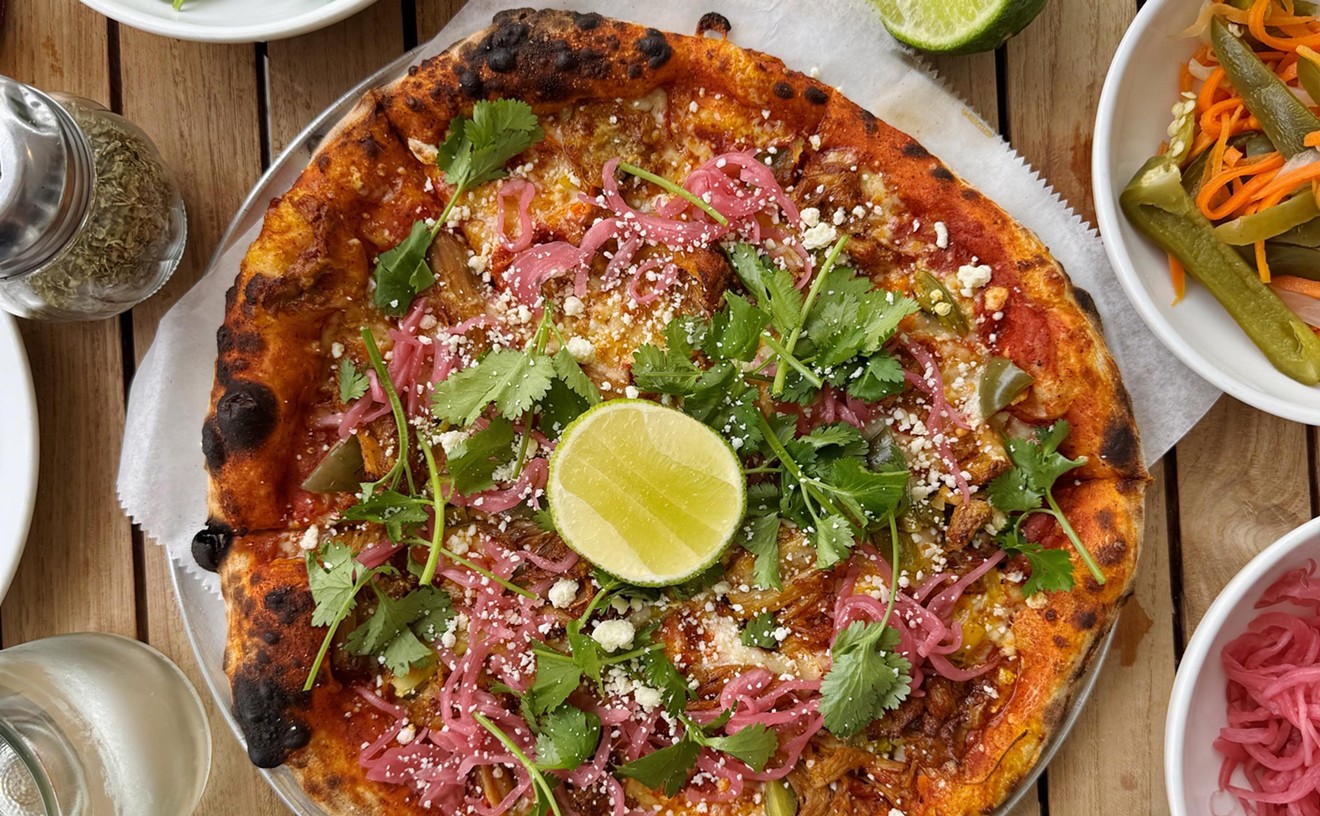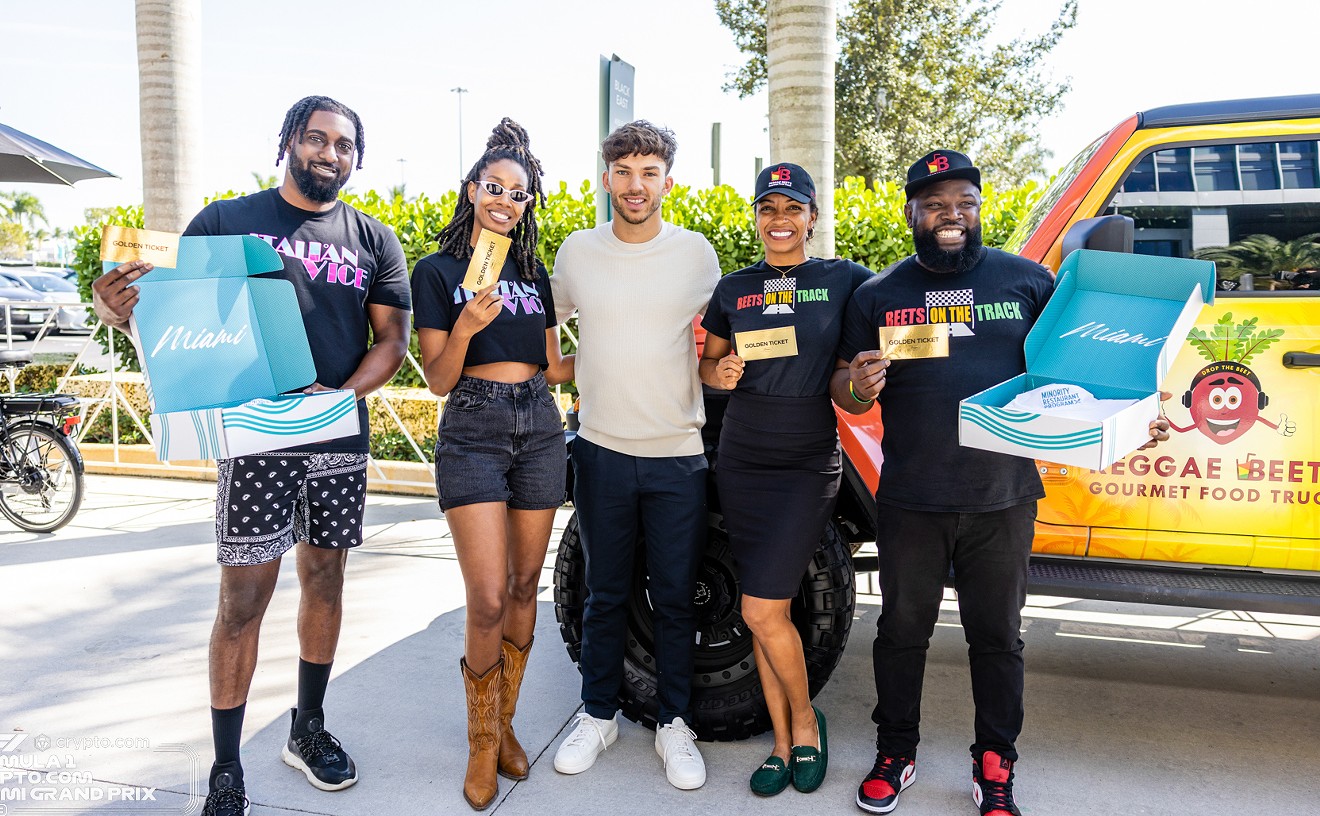The love of cheese is without a doubt the most common excuse vegetarians offer for not going whole-hog vegan. There's nothing mysterious about this; their cheese-clinging is rooted in chemical addiction. Mother nature installed an opioid substance in cow's milk to inspire the rightful drinkers of dairy --- baby cows --- to march back to the teat frequently so they can grow up big and fat. That same opioid substance affects humans, basically making them feel like they took a hit of smack every time they get a bite of cheese, a substance in which the chemical, called casomorphin, exists in much higher concentrations than it does in liquid cow's milk.
But in case you haven't noticed, cheese is far from a health food. Most varieties are high in saturated fat and cholesterol, and since the average American eats more than 30 pounds of cheese a year - up nearly three-fold from just 11 in 1970, according to the Center for Science in the Public Interest -- the Center figures it is the nation's number one source of artery-clogging saturated fat.
"What about the calcium? Isn't that a good thing?" some might ask. Yes, calcium is a necessary nutrient. And yet the countries that have the highest dairy consumption also have the highest rates of osteoporosis and hip fracture. So while calcium itself may be important for bone health, calcium in dairy products is not helping us to maintain strong bones as we've been led to believe. Experts at the Center for Science in the Public Interest say that excess dairy and meat consumption causes an acidic environment in the bloodstream. Calcium stores are then leached from the bone (and muscle is broken down, too) in order to bring the pH to a neutral level. In short, most would be better off getting calcium from plant sources like kale, edamame, almonds, sesame seeds, oranges, beans, broccoli, and cannellini beans. Just make sure to get vitamin D as well, from sunlight or supplements, which allows for the absorption of calcium.
But hey, this article is about vegan cheeses, not non-vegan cheeses. And there are a bunch of tasty ones out there. Here are five of them, just in time for your holiday "cheese" plates and recipes, and the low down on what they're made of, their flavor, how good or bad they are for your health, whether they melt like the real thing.
5. Vegan "Cream Cheese"
Of all the vegan cheeses on the market, I give popular vegan cream cheeses fifth place because, on the positive side, some of them taste remarkably like the real thing. Galaxy Foods Vegan Chive and Garlic is the best faux cream cheese I've tasted; it's so creamy and flavorful, you won't miss dairy one bit when you bite into a whole grain bagel slathered with the stuff. The plain variety makes a great base for a vegan cheesecake. On the negative side, though, these cheeses aren't much better for you than the "real" cream cheeses out there. They are high in fat (Galaxy Foods' variety delivers 4.5 grams of saturated fat - a quarter of your recommended daily allowance - in two tablespoons) and are generally made with a bunch of oils and fillers, including partially hydrogenated soybean oil in Tofutti's version and cornstarch, xanthan gum, and guar gum in Galaxy Foods' products. When you want to splurge on a vegan cream cheese, I recommend Galaxy Foods' products because they don't contain the partially hydrogenated oil and the preservative that Tofutti, the original faux cream cheese maker, stuffs in their not-really-cream-cheeses.
4. Rice "Cheese"
Straight out of the package, Galaxy Foods' rice-based vegan cheese (they make a non-vegan rice cheese that contains milk-derived casein as well- vegans beware!) has a grainy, greasy texture that's only just passable as a topping for crackers. But when it's melted between slices of bread or in veggie quesadillas, it's a win. The gluten-free, soy-free product comes in three flavors: American, pepper jack and cheddar, and is either packaged in those individually plastic-wrapped slices (like Kraft processed cheese) or in sliceable bricks like the one pictured on the left.
3. Soy "Cheese"
Follow Your Heart Vegan Gourmet makes some very convincing soy-based dairy alternatives, and they're gluten-free for those who avoid eating wheat protein for whatever reason. They taste like cheese (in flavors like mozzarella, nacho, monterey jack and cheddar), slice like cheese, and even melt like it - man that soybean is one versatile legume, eh? Again, to achieve this level of cheesiness, vegan cheese makers do have to employ some less-than-stellar ingredients. In this case, the fact that non-GMO expeller-pressed canola oil is the second ingredient (next to water) is less than ideal. But when you're craving cheese without animal involvement, Vegan Gourmet's soy cheeses make a great cheese-like topping for nachos, crackers or homemade pizzas, and a great filling for sandwiches.
2. Faux Feta and Bleu Crumbly "Cheeses"
I just tried Vegcuisine's organic soy bleu cheese for the first time less than a year ago, and it rocked my world. It crumbled like the real thing, had an authentic tangy bleu cheese flavor, and melted into a creamy mouthful of yum when eaten on crackers or in salads. The feta is equally good. They're made from all-organic ingredients, including soy milk, olive oil, and chia seeds (one of my favorite superfoods), and you could eat an entire brick of the stuff for a measly 150 calories, making them one of the healthier cheese alternatives. These two would make a great addition to holiday cheese plates alongside fresh fruit and some nice red wine or sparkling cider. Who said that being vegan means you have to forgo the finer things in life?
1. Tapioca-Based "Cheese"
Many vegans already know about Daiya cheese because it is hands-down the cheesiest non-cheese around. It seems to be the first-choice cheese alternative for many vegan restaurants, and for good reason. The tapioca and arrowroot flour-based cheese alternative is not only dairy-free, but gluten-free and soy-free, making Daiya a good choice not just for vegans but also for those with food allergies. Daiya comes either shredded (my favorite for recipes) or in sliceable wedges (good for cheese plates) in flavors like cheddar, mozzarella, pepperjack and jalapeno garlic havarti. Daiya cheese gets the number one slot for its flavor and versatility - not because it's the healthiest anti-cheese. It contains a lot of oil - both canola and coconut - but its flavor and texture are so convincing that I'd call it the best non-dairy cheese on the vegan market.
So there you have it: my favorite widely-available vegan cheeses. If you're a serious health vegan, though, you'll probably want to make a nut-based cheese at home. Cashew and almond cheeses are favorites. Just be sure to plan ahead; many recipes ask you to soak the nuts for 12 or more hours.
Follow Short Order on Facebook and Twitter @Short_Order.









